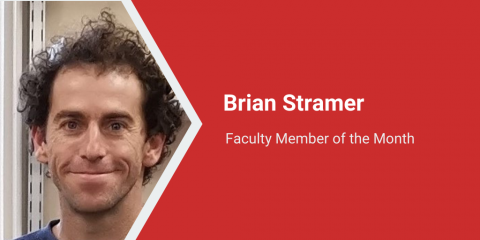Wondering how to find peer reviewers that are experts in your field? Our peer review team offer 5 actionable tips to help you get started.
In this Q&A, Elizabeth Adams and Tanita Casci, University of Glasgow, discuss their recently published policy document on F1000Research, which summarises the outcome of an event that brought together around 60 researchers, funders, policy makers, research managers and representatives from the publishing industry to identify the practical actions that promote a positive research culture; that is, one in which good practice and collegiality are the norm.
In the spirit of Halloween, this month we’re bringing you a very spooky story from the natural world. Research published in BMC Evolutionary Biology and recommended by the F1000Prime Faculty tells the horrifying tale of a fungus capable of controlling not only an ants mind, but it’s entire body, leading to the creature’s ultimate gruesome demise.
Brian Stramer is our Faculty Member of the Month. He is the group leader at the Randall Division of Cell and Molecular Biophysics and lecturer in the department of Anatomy and Human Sciences at King’s College London. In this blog, he talks us through a day in his life and what he likes about being a member of the F1000Prime Faculty.
In this blog post, Robert F. Terry, manager of Research Policy at TDR and Phaikyeong Cheah, coordinator of the Mahidol Oxford Tropical Medicine Research Unit Data Access Committee and Amanda Blatch-Jones, Senior Research fellow at the NIHR, explore the importance of data sharing, the scepticism surrounding this practice and what needs to happen in order for it to become second nature.
Using open research to develop a high-quality network of laboratories to survey, control and eliminate neglected tropical diseases. Laura Dean and Imelda Bates, Liverpool School of Tropical Medicine, discuss their work on the first critical step to developing this important network and the benefit of open access for its accessibility and transparency.
How to get the credit you deserve? This week our Peer Review Experts take you though the several ways to claim credit for the work you put into your peer review report.
Jeniffer Jeykumar, F1000Research, discusses memory and highlights a few articles published on F1000Research looking into the processes involved and what we can do to improve our working memory. Memory is something which we all rely on, often without thinking much about the specifics, and how we’re able to store, process and retrieve information on a…
In this Q&A, we chat with Rubén de Alarcón Gómez, the lead author on a systematic review into online porn addiction which has been recommended by the F1000Prime Faculty, to find out more about the nature of the condition, where we stand on treatment and how official recognition could change the scope of research into this area.
What is a living systematic review? James Barker, Senior Assistant Editor at F1000, introduces us to this novel article type explaining how it can help us keep up to date with the latest evidence.

















